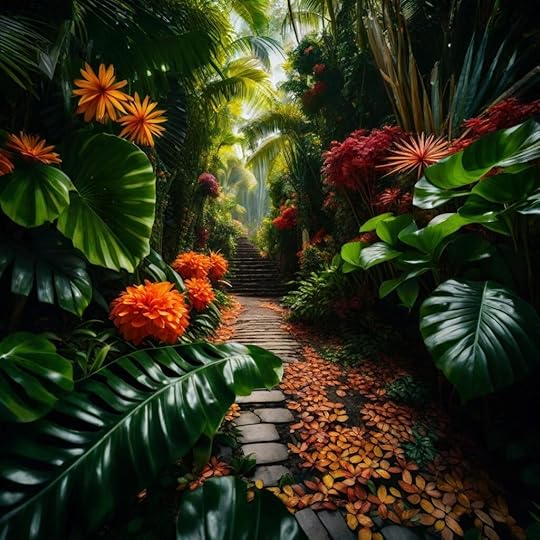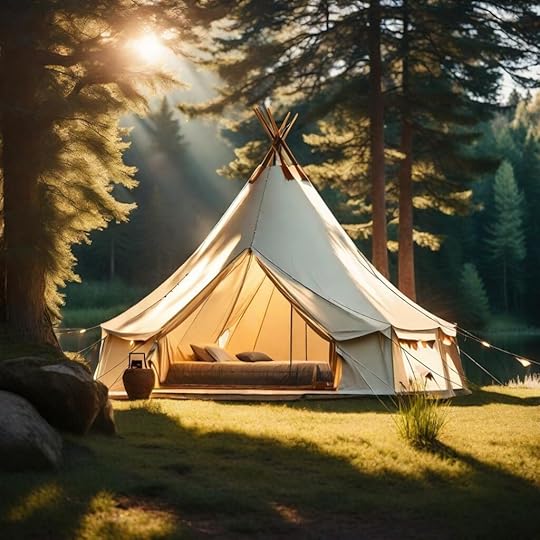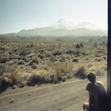The Path to Interconnected Living
When we think of our milieu, we tend to look at it in terms of solely our human made environment — with all the infrastructure, constructions, and social and cultural conducts this entails. Within this environment there is a lot to learn for children and teenagers; there are a multitude of ways in which they must be cultivated in order to fit in and become decent citizens, neighbours, consumers, employees or employers, colleagues, friends, and husbands/wives.
Furthermore, the cityscapes we have created require lots of skills for young humans to navigate: they must learn how to steer traffic, first on foot, later perhaps on bicycle (depending where they grow up), and even later on or in motor vehicles, as well as in public transportation (if that is the dominant source of transport where they live).
These are of course all important skills and competences that are necessary in order to master a late-modern environment. But what about our natural environment? Why don’t we learn how to thrive and survive in nature? Why is there so little (if any) focus on fostering a kinship and living in harmony with our natural environment? Is it because there is hardly any wild nature left on this planet, and therefore this appears unnecessary? Or is it because we seem to have agreed that cultivation involves creating a distance to our natural surroundings; almost as if this distance (that tends to grow bigger and bigger the older we get) is a prerequisite to our sophistication and civilization?

Whatever the reason, the result is that we are more or less completely lost when it comes to navigating and surviving in wild nature. And because hereof nature scares us, feels messy and dirty to us, and is something we are disassociating ourselves from and something that we have learned to view as a resource for us to use, a commodity that we can mould and shape in whichever ways we want (in order to cultivate it or aestheticize it).
Consequently, if we were dumped in the middle of nowhere, in wild, flourishing, diverse, disorderly (yet perfectly harmonised) nature we would be totally lost. We have completely abandoned the core skills of our ancestors such as navigating by taking notice of the sky (as a parenthesis, my youngest son is intrigued by this notion at the moment, and practices every day telling the time by looking at the sky; a skill that he now masters to an extend that he has started questioning why one should ever wear a watch), creating fire, using wild plants for foods, medicine and shelter, protecting ourselves from animals by making sure our paths don’t cross (instead of killing them) etc. We have sacrificed these skills on the altar of comfort, cultivation, and material possessions; a sacrifice that is bigger than we are aware of. Because this exact sacrifice is what drives our unsustainable behaviour and is generally why we continue to pollute, over-consume and take advantage of nature.
Furthermore, this sacrifice has led the vast majority of us into despair; to a feeling of desolation and of never feeling satisfied.
Why?
Because during the development of distance between human beings and between us and our natural environment that characterises modern time, we have forgotten that we too are nature. Perhaps we have even told ourselves that our religions, our gods, preach human superiority and hence, that our supremacy is law. But is it law? Are we really free to use and exploit endlessly? Is that what genuine freedom feels like?

The arisen slow movement and the increasing number of nature retreats, glamping sites and nature shelters, as well as the growing focus on nurturing our relationship to nature in literature (there is an almost Wordsworthy nature-romanticism going on here combined with a scientific approach to human-nature interconnectivity that is exemplary presented in The Overstory by Richard Powers) shows that somewhere deep down we know. We know that something fundamentally nourishing and wholesome is missing in our fast-paced, sheltered, urbanised, consumerist lives. We know that we need a balance.
And so, we seek to harmonise our lives by adding a “stock cube” of condensed nature-experiences in the shape of the occasional forest lake swimming, nights in a nature shelter or weekend getaways to remote off grid resorts.
But the true connection is still missing. And we wonder why.
While we are moving slowly through that fresh forest lake, and while we are sitting by the campfire surrounded by fragrant, dark nature we might feel a glimpse of connectivity, and we might get a rush of an unfamiliar sensuous satisfaction that isn’t thought-based nor interlinked with consumption; a profound feeling of belonging and of beauty — raw, unfiltered beauty. But once we leave the setting and go back to our convenient, sheltered lives the feeling is gone and has left us with nothing but a brief sense of relief. The momentary wordless experience of being at home in the world that characterises the sublime aesthetic experience stays with us for a bit, but the vibrations therefrom quickly fade away once our beeping phones and growth mindsets start invading our thoughts again.
To truly develop our sense of connectivity — to each other and to nature — through our sensitivity to beauty; through appreciation of the magic that surrounds us and is within us, we must incorporate it in our daily lives. Not only in weekend getaways, but in our everyday whereabouts. The sense of place and respect for our environment will grow from here.



